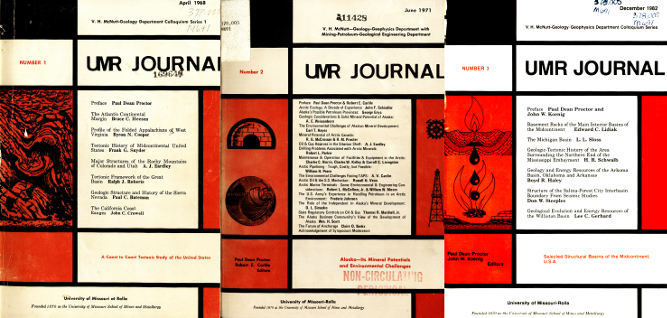UMR Journal -- V. H. McNutt Colloquium Series

Publication Date
01 Dec 1982
Abstract
The Michigan basin is widely acknowledged to be the archetype among those basins of cratonic interiors whose subsidence is dominated by flexure rather than faulting. Broadly ovate in plan over an area of some hundreds of thousands of square kilometers, with a preserved Phanerozoic sediment thickness exceeding 4 km accumulated during distinct episodes of subsidence over a 500-million year span, the basin is endowed with significant fossil-fuel resources.
The basin area is crossed, from north-northwest, by a rift zone filled with mafic igneous rock and great thickness of sedimentary rock resting on Archean and Middle Proterozoic crystallines. Rifting is presumably of Keweenawan age, but the igneous rocks cannot be dated more explicitly than “older than 600 myBP”. The ill-defined Grenville Front lies near the eastern basin margin.
The basin area, along with the whole of the cratonic interior, suffered intensive erosion before Late Cambrian time when renewed sedimentation began; probably as a northern extension of the Illinois basin-Mississippi Embayment.
Basinal subsidence conforming to the present architecture of the Michigan basin began in mid-Ordovician time, to be followed by further pulses of significant downwarp in the Middle and Late Silurian, Middle Devonian, and Middle Mississippian. Minor accumulations of Pennsylvanian, Jurassic, and Pleistocene sediments are preserved; the Pennsylvanian episode appears to have been accompanied by basement faulting during which the greater part of deformation of the basin fill occurred.
Each of the major episodes of basinal subsidence is marked by changes in the geometry of the basin, such as changes in the position of the depocenters and degree of confinement of expansion of the basin interior.
Episodes of more rapid subsidence of the Michigan basin, times of change in basin geometry, and intervening episodes of stability (commonly accompanied by erosion) are synchronous with similar basins of the North American and other cratonic interiors.
Document Version
Final Version
File Type
text
Language(s)
English
Rights
© 1982 University of Missouri--Rolla, All rights reserved.
First Page
25
Last Page
30
Recommended Citation
Sloss, L. L.
(1982)
"The Michigan Basin,"
UMR Journal -- V. H. McNutt Colloquium Series: Vol. 3, Article 4.
Available at:
https://scholarsmine.mst.edu/umr-journal/vol3/iss1/4


